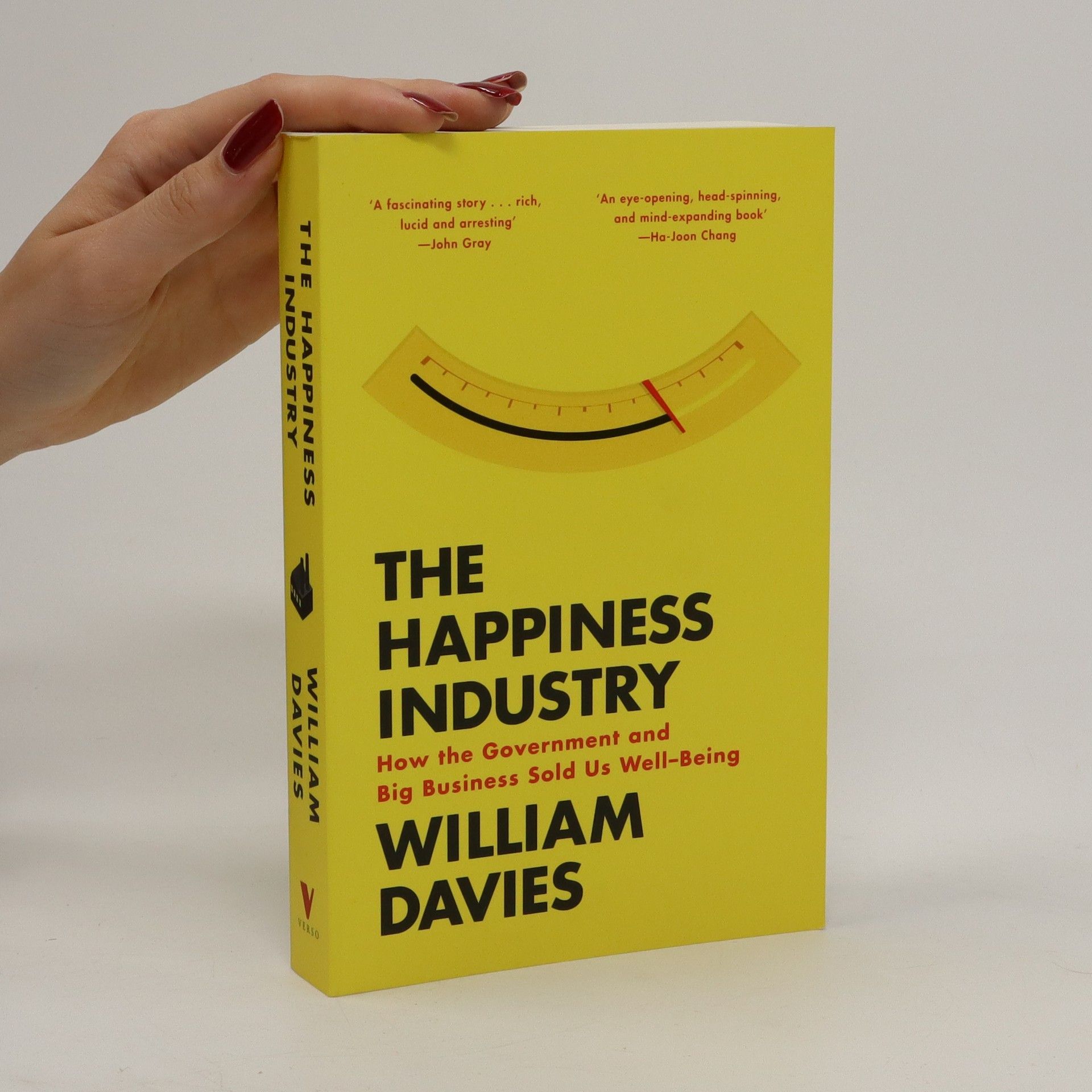The Arctic Diaries
- 68pagine
- 3 ore di lettura
A poetic project of preservation and sense of place. Rich imagery and language dives deep into the lives of coastal communities in the far north of Norway, from debut poet, Melissa Davies
William Davies è un autore rispettato la cui scrittura è apparsa in pubblicazioni di spicco come la New Left Review, Prospect e il Financial Times. In qualità di Reader in Political Economy presso la Goldsmiths, University of London, offre ai lettori approfondimenti su complessi sistemi economici e politici. Le sue analisi sono apprezzate per il loro rigore e la loro capacità di illuminare le questioni sociali contemporanee.






A poetic project of preservation and sense of place. Rich imagery and language dives deep into the lives of coastal communities in the far north of Norway, from debut poet, Melissa Davies
Hungarian - English Phrase Book (Magyar-angol társalgás)
Lead successful and lasting negotiations of any size with confidence using this five-step, solution-focused process based on decades of international experience.
What just happened and how did we get into this mess? Since the 2016 referendum, the UK has been in a crisis of its own making. But there are more reasons for this than Brexit alone. A wave of disruption has hit political parties, the mainstream media, public experts and all kinds of officials. Along the way, there have been dramatic and sometimes shocking events: the burning of Grenfell Tower and the Windrush scandal, the rise and fall of the Brexit Party, Boris Johnson’s Conservative purge and his resounding election victory. The state’s response to the pandemic was a further sign of how abnormal things had become. As the ‘mainstream’ of politics and media has come under attack, the basic norms of public life have been thrown into question. Authoritarian and nationalist forces advance as liberalism recedes. This Is Not Normal takes stock of a nation that no longer recognises itself. Davies finds the narrative sense behind apparently chaotic and irrational events, extracting their underlying logic and long-term causes. We are witnessing the combined effects of the 2008 financial crash, the failure of the British neoliberal project, the dying of Empire, and the impact of the changes that technology and communications have had on the public sphere. How the nation revives from the economic and political shocks of the lockdown remains uncertain. This is an essential book for anyone who wants to make sense of the current moment.
“Deeply researched and pithily argued.” —New York Magazine “A brilliant, and sometimes eerie, dissection” of ‘the science of happiness’ and the modern-day commercialization of our most private emotions (Vice) Why are we so obsessed with measuring happiness? In winter 2014, a Tibetan monk lectured the world leaders gathered at Davos on the importance of Happiness. The recent DSM-5, the manual of all diagnosable mental illnesses, for the first time included shyness and grief as treatable diseases. Happiness has become the biggest idea of our age, a new religion dedicated to well-being. Here, political economist William Davies shows how this philosophy, first pronounced by Jeremy Bentham in the 1780s, has dominated the political debates that have delivered neoliberalism. From a history of business strategies of how to get the best out of employees, to the increased level of surveillance measuring every aspect of our lives; from why experts prefer to measure the chemical in the brain than ask you how you are feeling, to why Freakonomics tells us less about the way people behave than expected, The Happiness Industry is an essential guide to the marketization of modern life. Davies shows that the science of happiness is less a science than an extension of hyper-capitalism.
Post-Neoliberalism?
A critical and evidence-based account of the COVID-19 pandemic as a political–economic rupture, exposing underlying power struggles and social injustices. The dawn of the COVID-19 pandemic represented an exceptional interruption in the routines of work, financial markets, movement across borders and education. The policies introduced in response were said to be unprecedented—but the distribution of risks and rewards was anything but. While asset-owners, outsourcers, platforms and those in spacious homes prospered, others faced new hardships and dangers. Unprecedented? explores the events of 2020-21, as they afflicted the UK economy, as a means to grasp the underlying dynamics of contemporary capitalism, which are too often obscured from view. It traces the political and cultural contours of a "rentier nationalism," that was lurking prior to the pandemic, but was accelerated and illuminated by COVID-19. But it also pinpoints the contradictions and weaknesses of this capitalist model, and the new sources of opposition that it meets. An empirical, accessible and critical analysis of the COVID economy, Unprecedented? is essential reading for anyone seeking to understand the political and economic turbulence of the pandemic’s first eighteen months.
Wir befinden uns in einer neuen politischen Ära, die viele ratlos zurücklässt: Wo bisher Zahlen, Daten und Expertisen Grundlage politischer Entscheidungen waren, sind nun Emotionen Trumpf. Ob Donald Trump in den USA, der Front National in Frankreich oder die AfD in Deutschland – überall greifen Populisten die Ängste der Menschen auf und sind mit ihren gefährlichen Ideologien auf Erfolgskurs. Doch wie konnte es dazu kommen, dass statt objektiver Größen wie Arbeitslosenzahlen oder Wirtschaftswachstum plötzlich Wut und Angst über unsere Zukunft entscheiden? William Davies erklärt unter Einbeziehung ökonomischer, philosophischer und politischer Theorien, wie es zum »Niedergang der Vernunft« und dem »Siegeszug der Gefühle« kommen konnte.